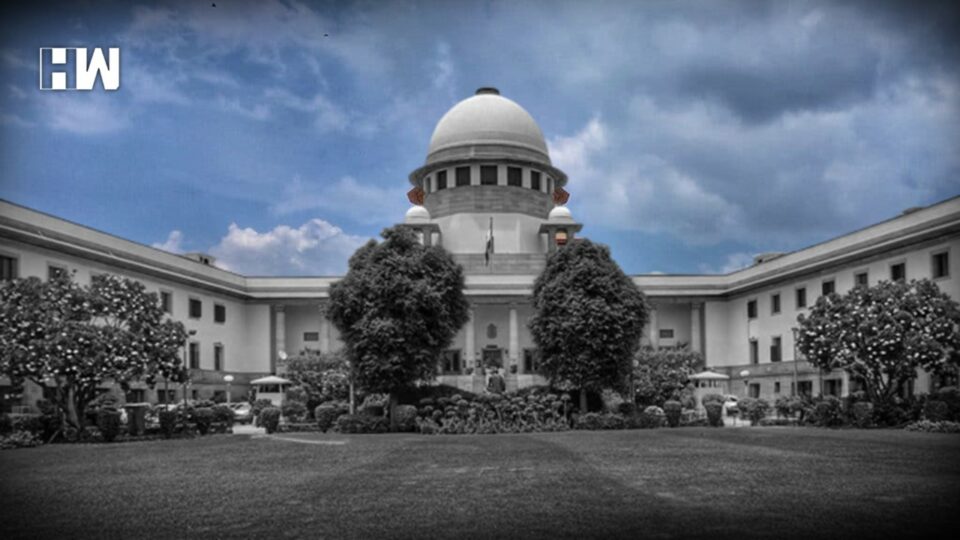“The Government may consider the introduction of a separate enactment in the nature of a Bail Act so as to streamline the grant of bails,”
New Delhi: The Supreme Court on Monday said criminal courts are guardian angels of liberty and a conscious failure by them would constitute an affront to liberty, as it asked the Centre to consider introducing a separate law like a Bail Act to streamline the grant of bails.
It also noted that prisons in the country are flooded with undertrial prisoners and the majority may not even be required to be arrested despite registration of a cognizable offense.
The apex court highlighted that in a democracy, there can never be an impression that it is a police state as both are conceptually opposite to each other.
The recommendation to consider framing the new bail law assumes significance given the clogging of bail pleas of several undertrial prisoners including activists, political leaders, and journalists.
A bench of Justices Sanjay Kishan Kaul and M.M. Sundresh noted that jails in India are flooded with undertrials and statistics indicate that more than 2/3rd of the inmates of the prisons constitute undertrial prisoners. It said the majority of them may not even be required to be arrested, despite registration of a cognizable offense, being charged with offenses punishable for seven years or less.
The top court further said, that they are not only poor and illiterate but also would include women, thus, there is a culture of offense being inherited by many of them.
While passing a slew of directions, it was observed the rate of conviction in criminal cases in India is abysmally low and this factor weighs on the mind of the Court when deciding bail applications in a negative sense.
“Courts tend to think that the possibility of a conviction being nearer to rarity, bail applications will have to be decided strictly, contrary to legal principles. We cannot mix up consideration of a bail application, which is not punitive in nature with that of a possible adjudication by way of trial,” said the bench.
It is the pious duty of the Criminal Court to zealously guard and keep a consistent vision in safeguarding the constitutional values and ethos”, said the bench.
“A criminal court must uphold the constitutional thrust with responsibility mandated on them by acting akin to a high priest,” it added.
“An investigating agency has to expedite the process of investigation as a suspect is languishing under incarceration, thus, a duty is enjoined upon the agency to complete the investigation within the time prescribed and a failure would enable the release of the accused. The right enshrined is an absolute and indefeasible one,” it said.
It further said bail applications be disposed of within two weeks except when provisions mandate otherwise while pleas for anticipatory bail be decided within six weeks.
“The Government may consider the introduction of a separate enactment in the nature of a Bail Act so as to streamline the grant of bails,” the bench said while pronouncing a judgment in a case related to the arrest of a man by the CBI, it added.
Stressing the need for a separate act for granting bill they said “There is a pressing need for the introduction of an Act specifically meant for granting bail as done in various other countries like the United Kingdom.”
Expressing belief on the center to consider the suggestions the court said “Our belief is also for the reason that the CrPC as it exists today is a continuation of the pre-independence one with its modifications. We hope and trust that the Government of India would look into the suggestion made in right earnest.”
It said probe agencies and their officers are duty-bound to comply with section Section 41-A of the CrPC(Notice of appearance before police officer).
“The High Court in consultation with the State Governments will have to undertake an exercise on the need for the special courts. The vacancies in the position of Presiding Officers of the special courts will have to be filled up expeditiously.” the court said.
Directing the high courts to find out undertrial prisoners who are not able to comply with the bail conditions the bench said: “The High Courts are directed to undertake the exercise of finding out the undertrial prisoners who are not able to comply with the bail conditions. After doing so, appropriate action will have to be taken in light of Section 440 of the Code, facilitating the release.”
It further said any dereliction has to be brought to the court’s notice, followed by proper directions and non-compliance would entitle the accused to grant bail.
The court concluded by saying, “As observed by this Court, it certainly exhibits the mindset, a vestige of colonial India, on the part of the Investigating Agency, notwithstanding the fact arrest is a draconian measure resulting in curtailment of liberty, and thus to be used sparingly. In a democracy, there can never be an impression that it is a police State as both are conceptually opposite to each other.”
As an independent media platform, we do not take advertisements from governments and corporate houses. It is you, our readers, who have supported us on our journey to do honest and unbiased journalism. Please contribute, so that we can continue to do the same in future.

